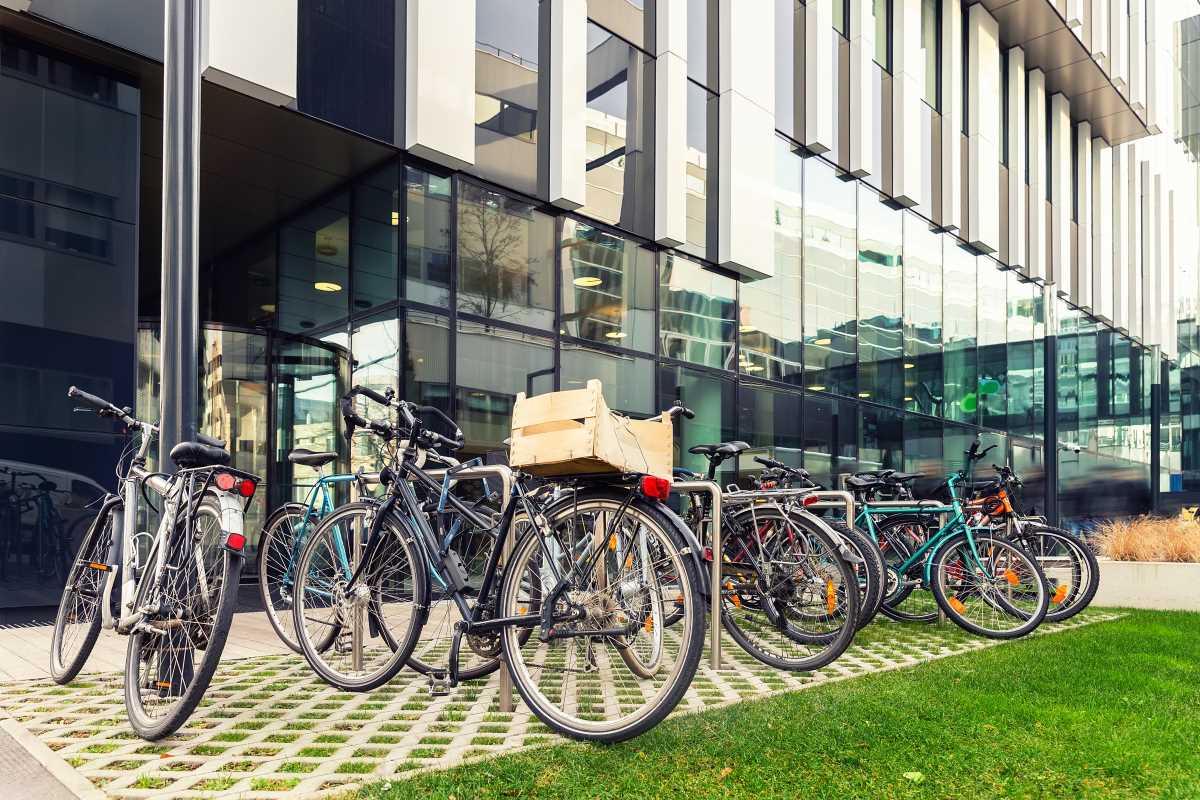Balancing the demands of college can be tough enough without factoring in the expenses of getting to and from campus. For many students, commuting is a necessary part of their college experience, but the costs associated with transportation can add up quickly. Gas, parking fees, vehicle maintenance, and public transit fares can eat into your budget before you even crack open a textbook.
The Challenges of College Commuting
Commuting comes with its own set of hurdles. Whether you’re navigating morning traffic or juggling your schedule around limited bus timetables, it’s easy to feel like your time (and money) is slipping away. Gas prices fluctuate, maintenance costs can catch you off guard, and parking fees can drain your wallet. If you’re already working part-time or managing a tight budget, these costs may feel like a huge burden.
But here’s the good news: you don’t have to conquer these challenges alone, and small adjustments in how you approach your commute can lead to noticeable financial relief. Whether you drive, bike, or rely on public transit, this guide breaks down actionable ways to lighten the load on your budget.
Smart Ways to Lower Your Commuting Costs
1. Carpool with Fellow Students
Why drive solo when there’s an opportunity to share the ride? Carpooling allows you to split the cost of gas and parking fees with others while also reducing the wear and tear on your car. Plus, it can make long drives more enjoyable when you have someone to chat with.
Here’s how to get started:
- Check if your college has a ride-sharing board or online forum where students can connect.
- Arrange a carpool schedule that works for everyone involved, including alternate drivers to share the responsibility.
- Agree on a system for splitting expenses upfront to avoid misunderstandings.
Carpooling doesn’t just save money; it also helps you build connections with classmates and reduces your environmental footprint.
2. Leverage Public Transportation
Many colleges are located on or near public transportation routes, making buses, trains, or shuttles an affordable option for commuters. Typically, public transit is much cheaper than driving, and some colleges even offer discounted or free transit passes for students.
To make the most of public transportation:
- Familiarize yourself with transit schedules and routes to plan your trips efficiently.
- Look into student discounts or unlimited monthly passes for reduced fares.
- Use transit apps to track real-time arrivals and minimize wait times.
If public transportation is a viable option for your commute, it can significantly cut down your monthly expenses while also giving you back time to study or relax during the ride.
3. Bike Your Way to Class
If you live within a reasonable distance from campus, biking can be an incredibly cost-effective (and healthy) way to commute. Not only do you save on fuel and parking fees, but you also get in a workout without needing a gym membership.
Here’s how to make biking work for you:
- Invest in a quality bike and essential accessories like a helmet, lights, and a good lock to keep your transportation safe.
- Use bike-friendly routes or pathways for a safer, smoother commute.
- Check if your college has secure bike racks or storage areas on campus.
Some schools even have bike-share programs, allowing you to rent a bike for free or at a low cost. These programs are a great option if you don’t own a bike but want to give commuting on two wheels a try.
4. Walk When Possible
Walking is an often-overlooked option that costs absolutely nothing. If you live close enough to your campus, walking can be a simple, stress-free way to get to class. You won’t need to worry about parking or traffic, and you’ll have an opportunity to clear your mind or listen to a podcast as you travel.
Even if you can’t walk the entire way, consider parking your car farther from campus (in a free or cheaper area) and walking the rest of the way. It’s an easy way to combine exercise with savings.
5. Keep Your Vehicle Maintenance Up to Date
If driving is your primary means of commuting, taking care of your car is essential for keeping costs down. A well-maintained vehicle runs efficiently, which means saving on gas and avoiding expensive repairs down the line.
Simple ways to keep your car in top shape include:
- Regular oil changes and tire checks to improve fuel efficiency.
- Keeping your tires properly inflated to enhance mileage.
- Addressing small issues promptly to prevent them from becoming larger, costlier problems.
- Cleaning out extra weight from your car (like unused sports gear or textbooks) to reduce strain on the engine.
Additionally, compare prices at gas stations along your route, and consider signing up for fuel reward programs to further cut costs. Driving efficiently, like avoiding unnecessary idling and braking, can also save you money over time.
6. Take Advantage of Student Discounts
Being a student comes with plenty of perks, including discounts on transportation. Many colleges partner with public transit systems, parking facilities, or even car-sharing programs to provide affordable options for students.
Here’s what to look out for:
- Reduced-price transit passes for buses, trains, or subways.
- Discounted parking permits or free shuttle services for students.
- Student rates for car-share programs like Zipcar, giving you access to a vehicle when you need one without the full-time expense of ownership.
Don’t hesitate to ask your school’s student services department about other transportation benefits you might not be aware of.
7. Plan Your Schedule Carefully
The way you organize your classes and activities can also impact your commuting costs. By grouping classes and commitments on the same days, you can reduce the number of trips you need to make to campus each week.
Some other ways to optimize your schedule include:
- Taking online or hybrid courses that allow you to skip the commute entirely on some days.
- Carpooling or sharing rides with students who have a similar schedule.
- Avoiding peak traffic hours to reduce fuel consumption caused by idling.
Being strategic about your time can not only cut expenses but also give you more free hours in your week.
Small Changes, Big Savings
Most importantly, remember that saving money isn’t an all-or-nothing process. Even small adjustments can add up over time, leaving you with more room in your budget for other priorities like tuition, textbooks, or activities that make college memorable.







